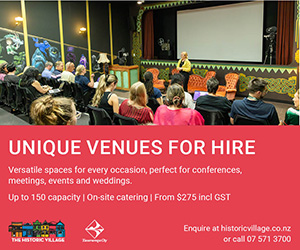When a valued employee starts looking for work elsewhere, it’s extremely unsettling. And it’s definitely an opportunity to investigate what can be done to help them stay – and to check in with your whole staff base.
The fact is that employee turnover is one of the major challenges for New Zealand companies. Indeed, the cost of employee turnover is one of the biggest drains on the bottom line with the average cost for recruitment, training and lost time and productivity at between 100-150 percent of the employee’s salary, depending on the role.
You need to understand that these costs are just as real as any other expenditure in your business – and be constantly alert to mitigating them.
For starters, you need to recognise individuality among your staff. There can be a lot you can do to keep top people besides increasing their remuneration.
People are motivated by different things. And, inequitable remuneration (perceived or real) is not the only reason they will seek new work, though if you are not paying a market wage you are unlikely to retain anyone long term who is competent at their job.
Common drivers to seek new career options include lack of recognition or lack of purpose or vision in the business, and a desire for more development opportunities and responsibility.
Alternatively, people are often frustrated by poor management, unmet expectations, stress and/or fatigue, or are simply bored by highly repetitive, mundane work.
So when someone is looking elsewhere, try to understand what motivates them and consider what would make their position more appealing. Indeed, you should be having this discussion with all your employees on a regular basis.
Communication is one of the keys to retaining good staff and may reveal what your employees need to keep them satisfied and productive.
If someone is leaving due to lack of responsibility or a desire for more status, discuss developing a career advancement programme with a performance plan and training opportunities.
And, if you’re not already offering excellent flexible work arrangements and investing in remote access technologies, then it’s well worth considering or you’ll be left behind in a market where this is increasingly expected.
If the motivation is financial, then you may want to weigh the cost of any proposed salary or wage increase against the costs of replacing them – i.e. all the costs associated with recruiting someone new, training costs, productivity losses (including your time) and performance losses.
However, be wary of the staff member constantly requesting further salary advances – you can’t buy loyalty and you may be being backed into a corner. You may end up buying another six months of their “loyalty” – until the next request comes in.
You can also suggest non-cash benefits as part of a remuneration package, such as providing a company car, subsidised health benefits, access to or funding educational or training courses, discounted products or services your business offers or even shares in your business, perhaps as part of a succession plan. Be aware of any Fringe Benefit Tax these expense benefits may attribute.
If money is the key driver, perhaps consider a small pay increase coupled with an increased employer kiwisaver contribution or implementing a performance-based bonus system.
Ultimately, employee turnover is a cost that all business owners face, and one that needs to be managed and if needed, budgeted for.


















